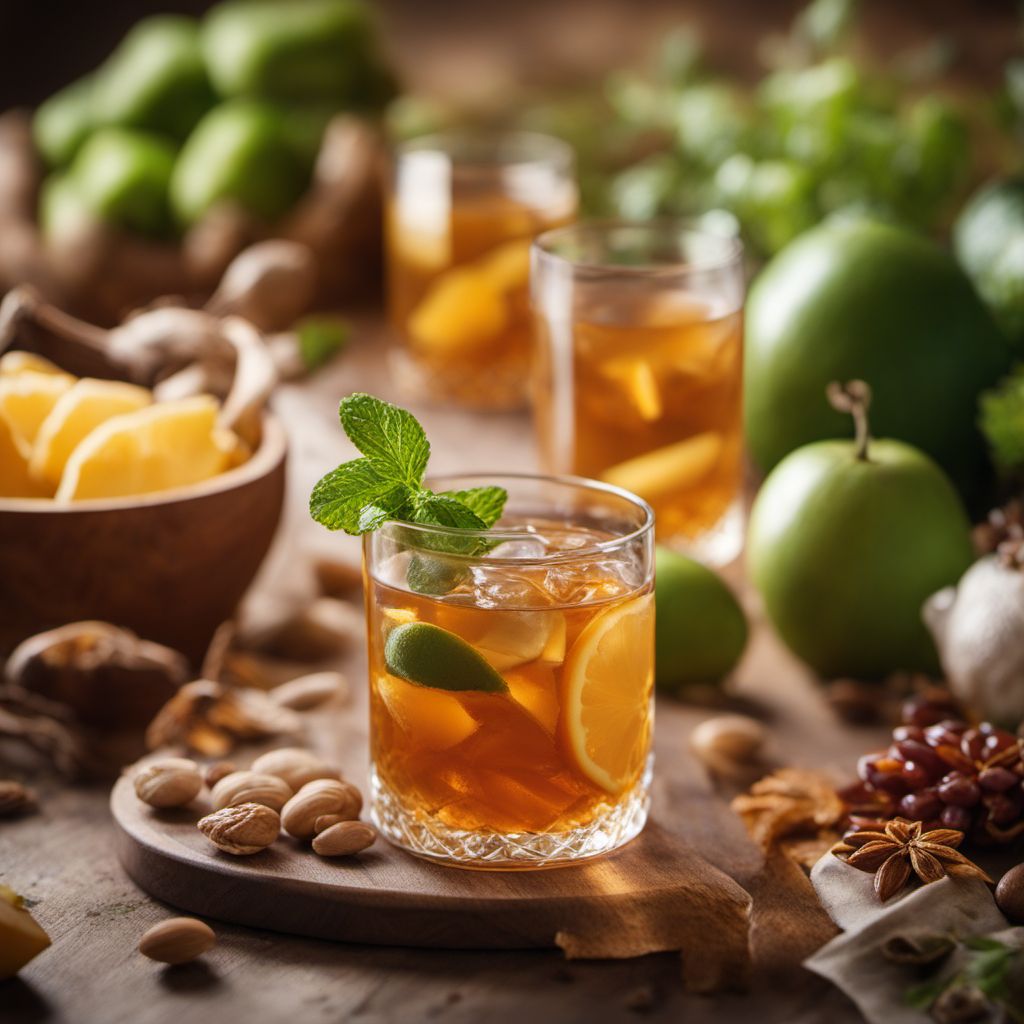
Ingredient
Spirits not from fruit
The Distilled Elixir: Spirits Beyond Fruits
Spirits not from fruit refer to alcoholic beverages that are distilled from ingredients other than fruits. This category includes spirits like whiskey, rum, vodka, tequila, gin, and more. Each spirit has its own distinct production process, ingredients, and flavor profile, making them a fascinating and diverse collection of libations.
Origins and history
The origins of spirits not from fruit can be traced back to ancient civilizations, where the art of distillation was discovered and refined. Whiskey, for example, has its roots in Ireland and Scotland, while rum has historical ties to the Caribbean. Over time, these spirits gained popularity and spread across the globe, becoming integral parts of various cultural and social traditions.
Nutritional information
The nutritional information of spirits not from fruit can vary depending on the specific type and brand. Generally, they are low in carbohydrates and fat, but high in calories due to their alcohol content. It is important to consume them in moderation and be mindful of their effects on overall health and well-being.
Allergens
There are no known allergens associated with spirits not from fruit. However, individuals with specific alcohol sensitivities or allergies should exercise caution and consult with a healthcare professional if necessary.
How to select
When selecting spirits not from fruit, consider the quality and reputation of the brand. Look for spirits that are produced by reputable distilleries and adhere to strict quality control standards. Additionally, consider personal preferences and the intended use of the spirit, whether for sipping, mixing cocktails, or cooking.
Storage recommendations
To maintain the quality and flavor of spirits not from fruit, store them in a cool, dark place away from direct sunlight or heat sources. Properly sealed bottles can be stored for extended periods, while opened bottles should be consumed within a reasonable timeframe to prevent oxidation and flavor degradation.
How to produce
Producing spirits not from fruit requires specialized equipment, knowledge, and expertise. It is a complex process that involves fermentation, distillation, and often aging or flavoring. Amateur production of spirits is subject to legal regulations and may require permits or licenses in many jurisdictions. It is advisable to consult local laws and regulations before attempting to produce spirits at home.
Preparation tips
When enjoying spirits not from fruit, it is important to savor them responsibly and in moderation. Explore different serving methods, such as neat, on the rocks, or in cocktails, to fully appreciate their flavors. Experiment with different mixers, garnishes, and glassware to enhance the drinking experience.
Culinary uses
Spirits not from fruit are incredibly versatile and are used in a wide range of cocktails and mixed drinks. Whiskey is often enjoyed neat or on the rocks, while rum is a key ingredient in tropical cocktails like the Mojito or Piña Colada. Vodka is a popular base for many classic and contemporary cocktails, while gin is known for its role in the iconic Martini and Gin and Tonic. Tequila is the star of the Margarita and other tequila-based cocktails.
Availability
Spirits not from fruit are commonly available in most countries and regions where alcohol consumption is legal. The specific types and brands may vary depending on local preferences and regulations.




